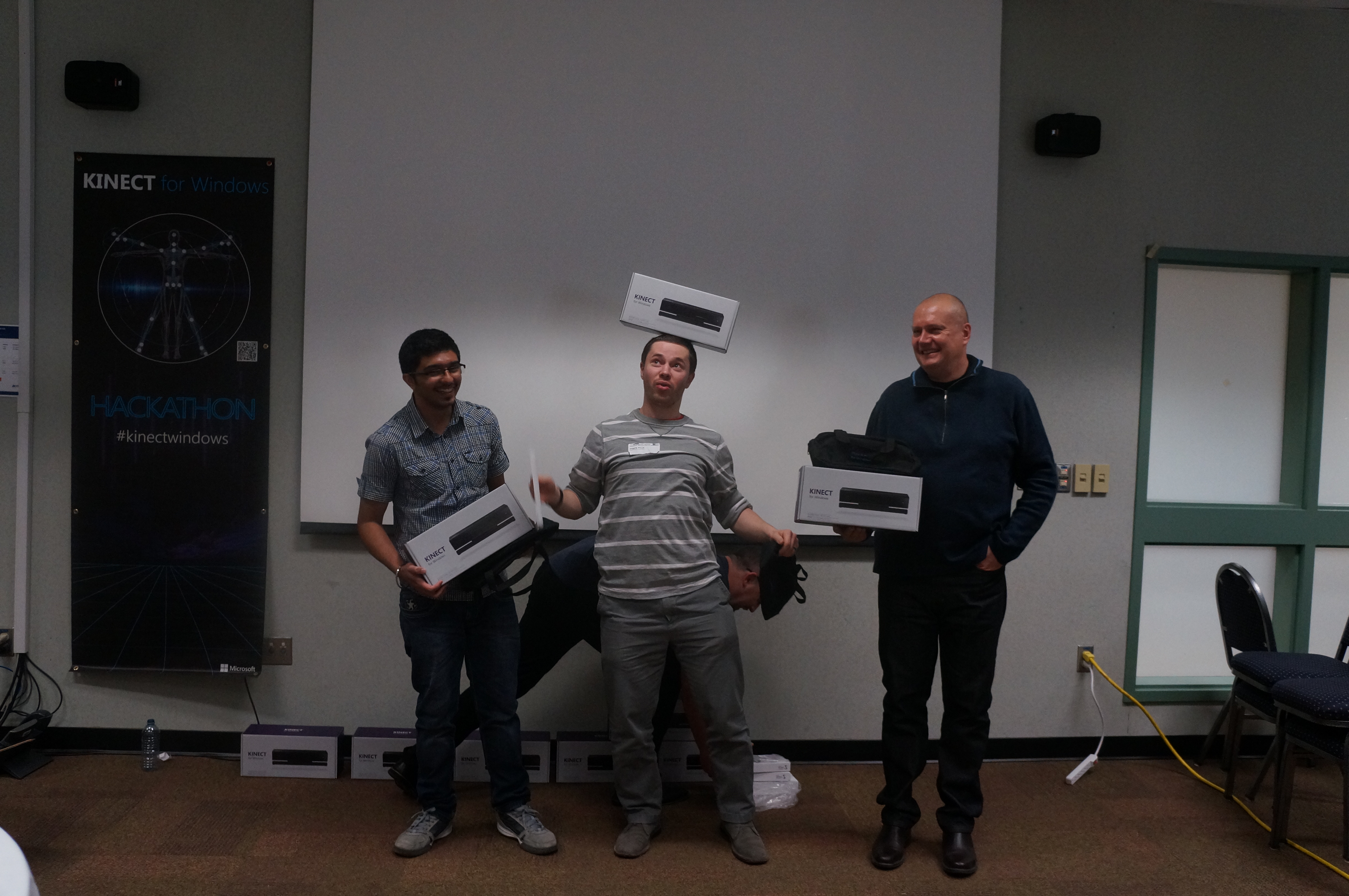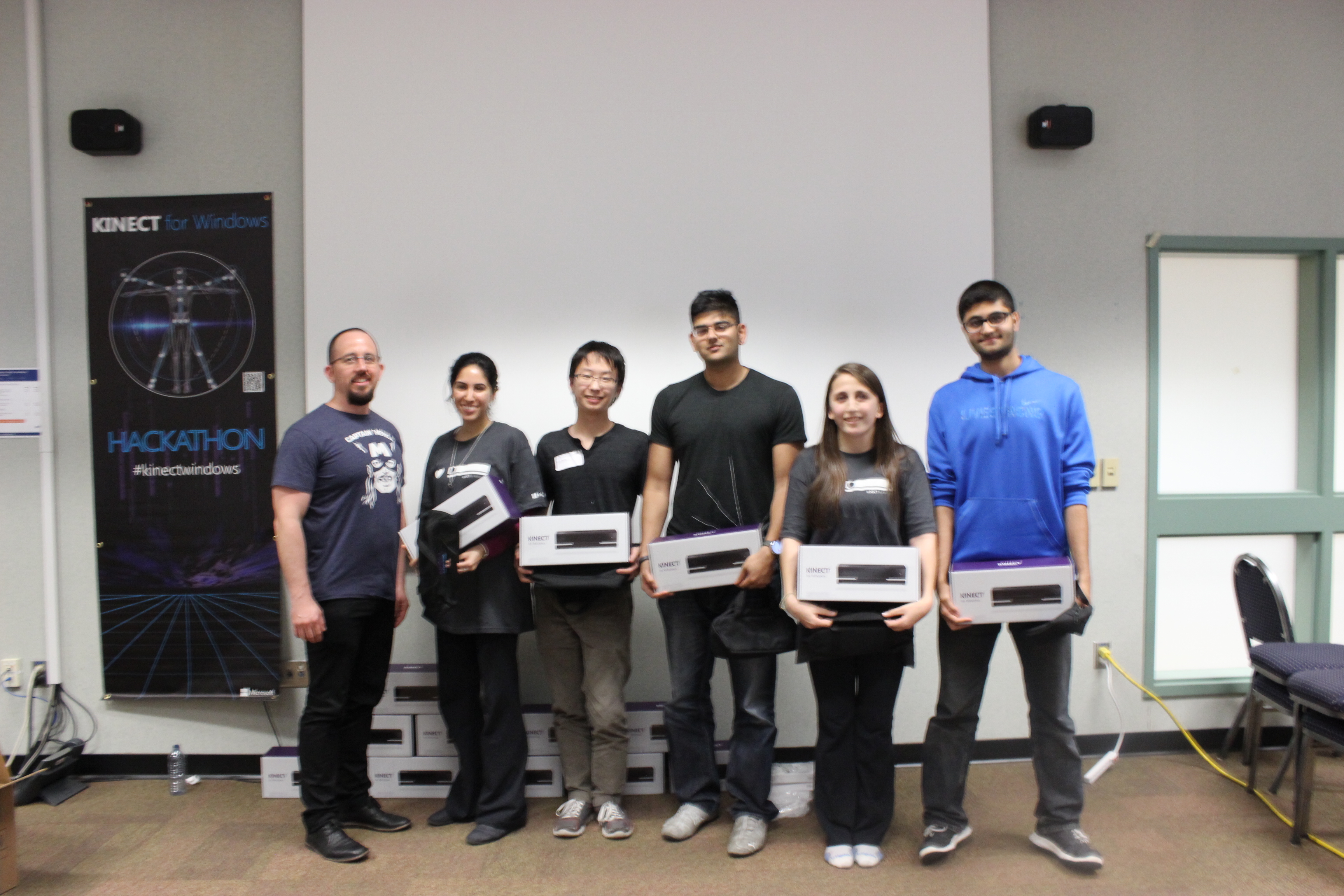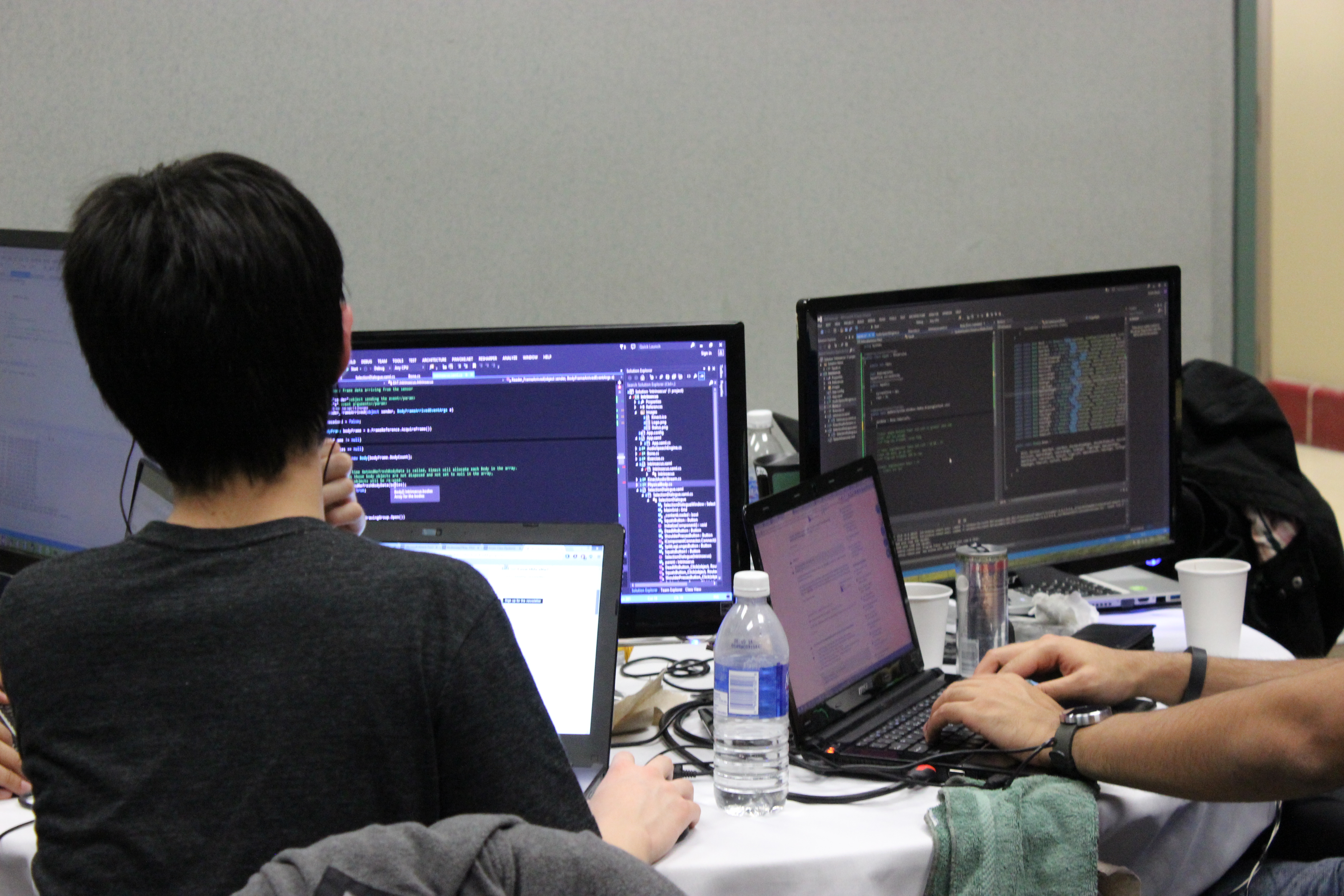Kinect for Windows Shines at Hack Vancouver
Last weekend I had the pleasure of joining Ben Lower and his Kinect team at BCIT in Burnaby, BC for the Hack Vancouver Kinect and Structure Sensor Hackathon. 103 hackers gathered for 28 hours to build projects using Kinect for Windows and Structure Sensor, a lightweight, portable 3D modeling sensor build for iPad. By the end of the event 12 teams remained to present their projects, all built with the Kinect, from games to healthcare applications to extensions of the Kinect's capabilities. Here's a look at the event and the winning projects!
First Place - Bubble Fighter
This team of students from UBC used the Unity 3D plugin for Kinect along with the Kinect's skeletal tracking capabilities and Gesture Builder setup to create a game controlled by the players' bodies. Players could use different combinations of hand gestures to shoot dragons (which breathed fire) and different types of bubbles at each other, which they could dodge by jumping and crouching. Designed to played remotely by two live players, the virtual distance between players was correlated to each player's distance from the Kinect sensor, so as a player gets closer to the sensor, he/she gets closer to the opponent. The team accomplished an astounding amount in the short hacking time.
Second Place - Public Speech Trainer
Designed to train users in the art of speech delivery, Public Speech Trainer provides the user with real-time feedback on posture and gestures. When the user is standing up straight with hands by their sides or in open gesture, the app displays colour video of the user inside a green frame, and the words "Good posture." When the user is crossing their arms, slouching, or standing with their hands in their pockets, the video turns to black and white, the frame turns red, and a description of what they're doing wrong is displayed. The app also displays the user's skeleton as viewed by the Kinect, providing them with a pared-down view of their posture. Finally, users can record their practices for later playback and analysis, allowing them to review their speeches and track their progress over time.
Third Place - Fitness Club
Fitness Club enables users to augment their workout with a virtual personal trainer that monitors exercises and guides the user to the perfect form. During the hackathon the Fitness Club team implemented a grammar so the user could control the app using voice commands, and six exercises including squats and lateral flies. This is the first step to the home gym of the future.
This hackathon was a great success! I look forward to seeing what all the winners and participants will do with their apps following the weekend's event. Imagine Cup, anyone?





